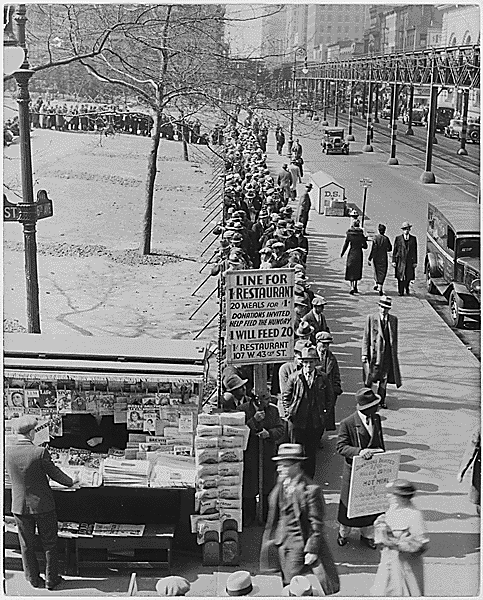More than 22 million Americans have filed for unemployment since President Trump declared a national emergency more than four weeks ago. The United States has not dealt with this staggering amount of job loss since the Great Depression.
Critics argue that the government has not responded in a fast enough manner to tame the coronavirus, and as a result of this, Americans are beginning to feel a slow burn because of what some perceive to be the government’s utter lack of responsibility and leadership.
Layoffs are coming from every which way. Restaurants, bars, parks, beaches, movie theaters, and malls were once a bustling aspect of everyday normal life, now it is seen as something we took for granted and slowly becoming more and more out of grasp. Grocery store clerks, delivery workers, and hospital employees are showing us the true definition of an everyday superhero.
Businesses are being forced to close in an attempt to slow the spread of the coronavirus. Hospitals are overflowing with sickly patients. Police, firefighters, and nurses are becoming sick.
The government was supposed to deliver a one time stimulus check for adults given that they were in a certain income bracket. This was put into place in order to help individuals fast, as many need the money now with so many job losses. Hardly anyone has received a check. Everyone has, however, received vague answers and silence.
“We expect over 80 million hard-working Americans will get the direct deposit by this Wednesday,” said U.S. Treasury Secretary Steven Mnuchin at a Monday press briefing. The other millions of hard-working Americans were left wondering when they would receive assistance.
In a press release, the IRS noted, “more than 6.2 million taxpayers have successfully received their payment status.” So far, 29 states are moving toward sending out an additional $600 provided by the federal government for one of the first few states to do so last week. Some states will take longer to process the extra $600 due to outdated computer technology, Labor Secretary Eugene Scalia said this past Wednesday. But those who are unemployed will not lose out because of this, payments will be retroactive to as early as March 29. Those who are receiving these enhanced payments will see this for the next four months, as the program ends on July 31.
The delays are even longer for those who are independent contractors, gig-economy workers, and self-employed who are not typically eligible for unemployment benefits. However, they are covered under two separate provisions in the Coronavirus Aid Relief and Economic Security Act.
The filing process is more involved than other workers and could make it even longer for those filing to receive benefits. “It’s a bit of a mess,” said Stephen Wandner, a labor economist and senior fellow at the National Academy of Social Insurance. “Congress was trying to do the right thing for this population,” he said of the expanded pool of workers. “But there was no simple way to do it.”
On Wednesday, April 14, Gov. Gavin Newsom noted that 2.7 million Californians filed for unemployment benefits in the past month. Newsom announced a $125 million relief effort to help 150,000 Californians without legal immigration status.
“We are in the process, right now, of dealing with an unprecedented number of people making phone calls to our Employment Development Department,” said Gov. Gavin Newsom. “We’re trying to process these applications and we’re trying to turn around those applications in real time.”



































